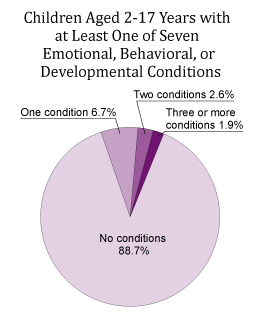Helping Troubled Teens With ODD – Oppositional Defiant Disorder
It is only Wednesday and you have already gotten a call from the school. Your child has been disruptive in class (again), and this time there is likely to be a suspension involved. This has become a common problem, and you are at your wit’s end. No punishment seems to work, no threats are heeded, and your pleading is ignored. What can you do? Why can’t they behave?
Oppositional Defiance Disorder (ODD) is a rare behavioral condition often associated with other disorders. Children and teens who suffer from this condition have difficulty regulating their emotions, and will often lash out at others as a result. This can lead to greater problems down the line as their environment is impacted, leading to more behavioral problems as a response. It is a difficult cycle to break, and teens with ODD can often be labeled as “bad kids” without getting the treatment they need to overcome it.
TEEN WITH ODD MAY SHOW THE FOLLOWING TRAITS AND PHYSICAL SYMPTOMS:
- Refusal to follow stated rules
- Frequent fights, verbal or physical, with adults or authority figures
- Deliberate attempt to upset, annoy or anger others
- Aggressive or menacing behavior
- Mean or spiteful attitude
- Seeking revenge against those who they feel have wronged them
- Quick to anger or annoy
- Unwilling to seek any compromise, even if beneficial to them
- Refusing to take responsibility for themselves or their actions, often blaming others
- Causing harm to themselves or others when lashing out, though often unintentional
EMOTIONAL SYMPTOMS OF ODD:
- Depressed
- Anxious
- Angry
- Frustrated
- Isolated
- Overwhelmed
- Uncomfortable
- Targeted
- Unforgiving
- Unloved

Oppositional Defiant Disorder (ODD) is a serious and diagnosable condition that affects as many as 16% of school age children and adolescents. It is categorized by a chronic disobedience and/or aggressive and defiant behavior shown primarily towards parental or authority figures, such as relatives, teachers, law enforcement officers, doctors, and others that the child sees as being in charge. This is not normal rebellion, and leads to incredibly disruptive behavior on the part of the ODD sufferer, including verbal and physical lashing out, refusal to follow directions, and becoming aggressive or menacing.
STATS ON OPPOSITIONAL DEFIANT DISORDER IN THE UNITED STATES AMONG TEENS
The average length of symptoms for those with ODD is five to six years.
Boys are diagnosed with Conduct Disorders twice as often as girls.
No one knows for sure what causes ODD, but experts believe is it a combination of social, psychological and biological factors.
Teens with ODD are more likely to also be diagnosed with ADHD, anxiety, mood, and learning disorders than those without.
(Image Source)
Early intervention has been shown to help with treating ODD.
WHAT YOU CAN DO
- Catch the symptoms as early and speak to your child’s doctor right away to have a referral made to a specialist.
- Get a referral to see a specialist who is trained in Conduct Disorders.
- Work with professional help to learn how to properly manage your teen’s symptoms.
- Set and maintain firm boundaries and rules for behavior.
- Help your teen learn coping techniques for their emotions and encourage open, honest communication at home.
TEENS ODD CAN FIND RELIEF BY:
- Being honest with their healthcare team about their feelings and struggles.
- Working to express emotions when they are first felt, rather than letting them build to unmanageable levels.
- Trying to gain some perspective on difficult situations, such as seeing how serious the situation is.
- Writing down or recording their thoughts and feelings.
- Learning what triggers their anger, and why.
- Speak to a therapist or support group.
- Take any medication given as prescribed.
HELP YOUR TEEN NOW HELPS PARENTS OF TEENS WITH OPPOSITIONAL DEFIANT DISORDER (ODD)
You don’t have to face these struggles alone. At Help Your Teen Now we know how difficult it can be to manage Conduct Disorders, as a parent and as a family. It isn’t always easy to know what is best, and you may feel as though you have run through every available option to you. We can help.
As Help Your Teen Now we have a team of experts who are ready to advise you. Our program helps families in your unique situation find the perfect solution that is tailored to the needs of your teen. We have access to inpatient and outpatient therapy programs, therapeutic boarding schools, support groups, and specialty programs that will place your teen in the best possible environment to cope with their feelings.
Whether your teen would be better suited in a hospital where they can be monitored through a new medication regime, or at a boarding school where their academic performance and mental/emotional health receive balanced treatment, we can find the options available in and out of your area. We can also guide you through the process of getting a proper diagnosis for your child, finding what insurance will cover, and helping your teen see the benefit of the selected program.
Request Free Admissions Information
"*" indicates required fields
Educational Recources
Request Free Admissions Information
"*" indicates required fields


